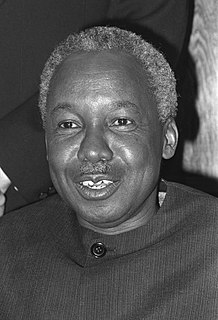A Quote by Robert H. Frank
Economics, as it is often taught today, portrays us as homo economicus-someone who doesn't vote in presidential elections, doesn't return lost wallets, and doesn't leave tips when dining out of town. Julie Nelson reminds us that most people aren't really like that. She helps point the way to a richer, more descriptive way of thinking about economic life.
Related Quotes
Economists operate with this image of the homo economicus, the rational economic agent, and while such agents are rare in the wider world, they are common in economics departments. Exemplifying the homo economicus paradigm, economists typically choose their research projects and hypotheses so as to promote their own careers, to maximize their lifetime income. This explains the astonishing pressures toward conformity in academic economics: how deviant views (except those by a few who have already achieved stardom) get crushed by an army of conformists.
It's really important to have life strategies and part of that is sort of knowing where you want to go so you can have a map that helps you to get there. And the traditional way tells us oh we get into school and someone else advises us, helps us, but that often does not work for African Americans female and male. Because what works for the dominant culture often does not work for us.
The Arab spring reminds me a bit of the decolonisation process where one country gets independence and everybody else wants it. How about us, when do we get it, when do we make our move? And you have a situation where someone has been in power for decades, where the integrity of elections, democracy and security have really not been debated or discussed and most people suspect that elections are rigged and that the democratic rotation that elections are supposed to ensure doesn't really happen. And when this goes on for a while you are sitting on a powder keg.
Our "life education" has not necessarily taught us a satisfying way to live. We suffer from a vague sense that there must be something more, some deeper meaning. We must return to kindergarten and start to learn a way of life that is contrary to the way we approached things before-a way of life based on trust of our own inner truth. We can rediscover the child-like innocence and wisdom that knows that anything is possible.
If I could, I'd go city by city, county by county, town by town, and talk to people to explain to them what immigration is really about - that this is not about me, this is not about us, this is not about us taking something from you. This is not about us being a threat to you. This is not about Democrat or Republican, and this is not really about border security. But in some ways our politics, and in many ways our politicians, have gotten in the way.
I was raised the Chinese way: I was taught to desire nothing, to swallow other people's misery, to eat my own bitterness. And even though I taught my daughter the opposite, still she came out the same way! Maybe it is because she was born to me and she was born a girl. And I was born to my mother and I was born a girl. All of us are like stairs, one step after another, going up and down, but all going the same way.
My mom teaches sixth grade and also taught first grade at one point. She's into dressing up and costumes and designing her own curriculum that way. She stayed home for about eight years with me and my sister when we were young before going back to teaching, so we had a lot of time with her. She taught us to read really early.
Thirty years ago, if you said the country was living beyond its means, people would have thought about economics. Now, if you talk about the country, or the planet living beyond its means, you think about the environment. We are taking out more than we are giving back. We are consuming energy, water, and other natural resources in a way that is leading to huge and often irreversible damage to the planet. So too are most other developed nations. And so too will China and India if they follow the same path of economic development as us
Young people today seem to be coming around to the idea it really doesn’t matter which politician or political party you vote for; and they’re catching on that it doesn’t even matter if you don’t vote because they have realized modern elections are just a way for the 1% to appease the 99% – a way to keep the masses in line by making them believe they’ve had their say, thereby perpetuating the lie that democracy continues.
Look at our farmers markets today, bursting with heritage breeds and heirloom varieties, foods that were once abundant when we were an agricultural nation, but that we have lost touch with. Bringing all these back helps us connect to our roots, our communities and helps us feed America the proper way.
Look at our farmers' markets today, bursting with heritage breeds and heirloom varieties, foods that were once abundant when we were an agricultural nation, but that we have lost touch with. Bringing all these back helps us connect to our roots, our communities and helps us feed America the proper way.
Science has taught us to lengthen life. Now we must learn to make a longer life worth living. Older people deserve choices that let us live out our days as we wish. We've seen people making such choices all over America, and we realize what we might have known from the start: For most of us, there really is no place like home.


































